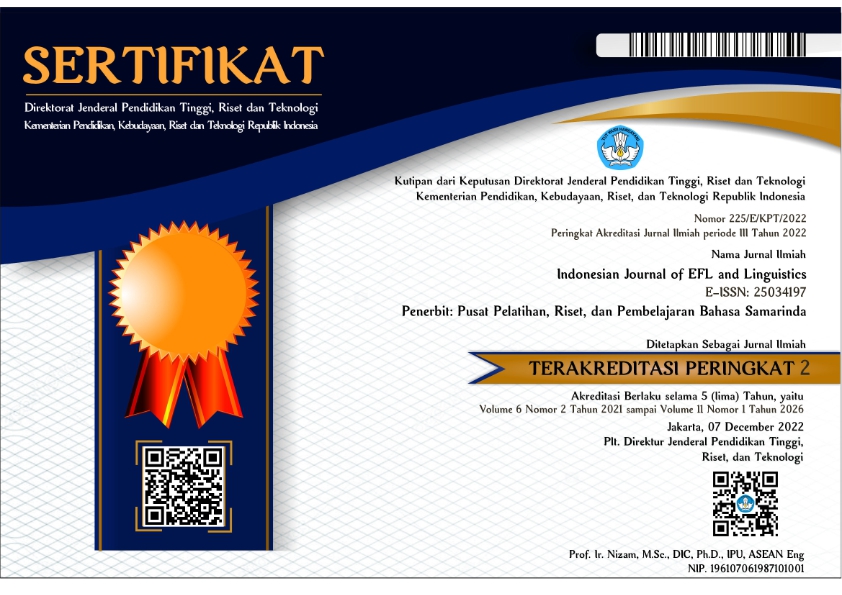An Ecological Ideology of the Dyak Chief Poem As Represented from Metaphors, Appraisal, and Salience Patterns: An Ecological Discourse Analysis
Abstract
The Dyak Chief Poem describes the poet's experience of witnessing the intersection of personal desires, cultural expectations, and the larger moral consequences of one's actions. This poem also presents a description of the nature of the island of Borneo at that time, which was still full of tropical rainforest. In addition to the themes of love, honor, and culture, this poem incorporates an ecological theme as its primary setting. Therefore, this poem is suitable for analysis using ecological discourse analysis to see whether this poem is eco-beneficial, eco-destructive, or eco-ambivalent. This research aims to determine the ecological ideology contained in this poem through metaphor, evaluation, and salience, using an ecological discourse analysis approach, which is a qualitative research method. The research results reveal that the depiction of nature as human illustrates the power of nature towards humans. In addition, upon examining the appraisal patterns, it becomes clear that only a few, such as appreciation and graduation, are directly related to nature. On the other hand, affect and judgment, on the other hand, pertain to the protagonist's own feelings and are not associated with either nature or the environment. The use of concreteness, transitivity patterns, and hyponyms reveal the salience of the poem. The researchers conclude, based on metaphor, appraisal, and salience patterns, that this poem is an eco-beneficial discourse that depicts nature as an integral part of human life, with which humans should coexist harmoniously.
Copyright (c) 2025 Indonesian Journal of EFL and Linguistics

This work is licensed under a Creative Commons Attribution-NonCommercial-ShareAlike 4.0 International License.




